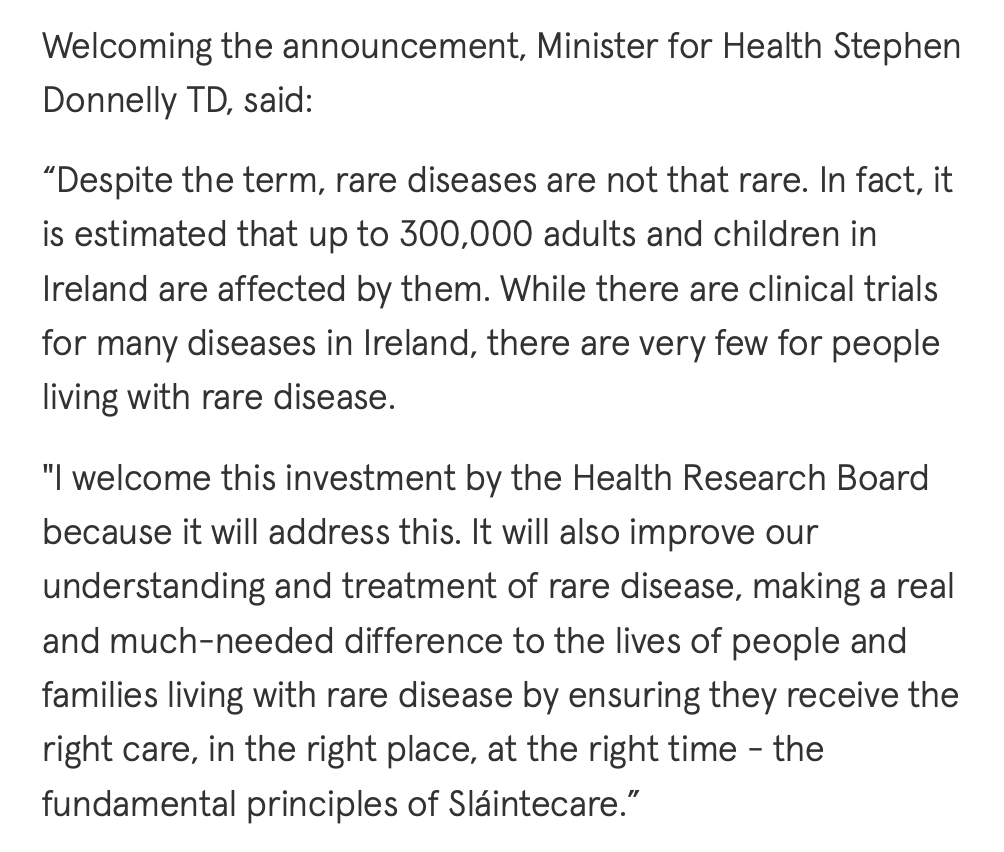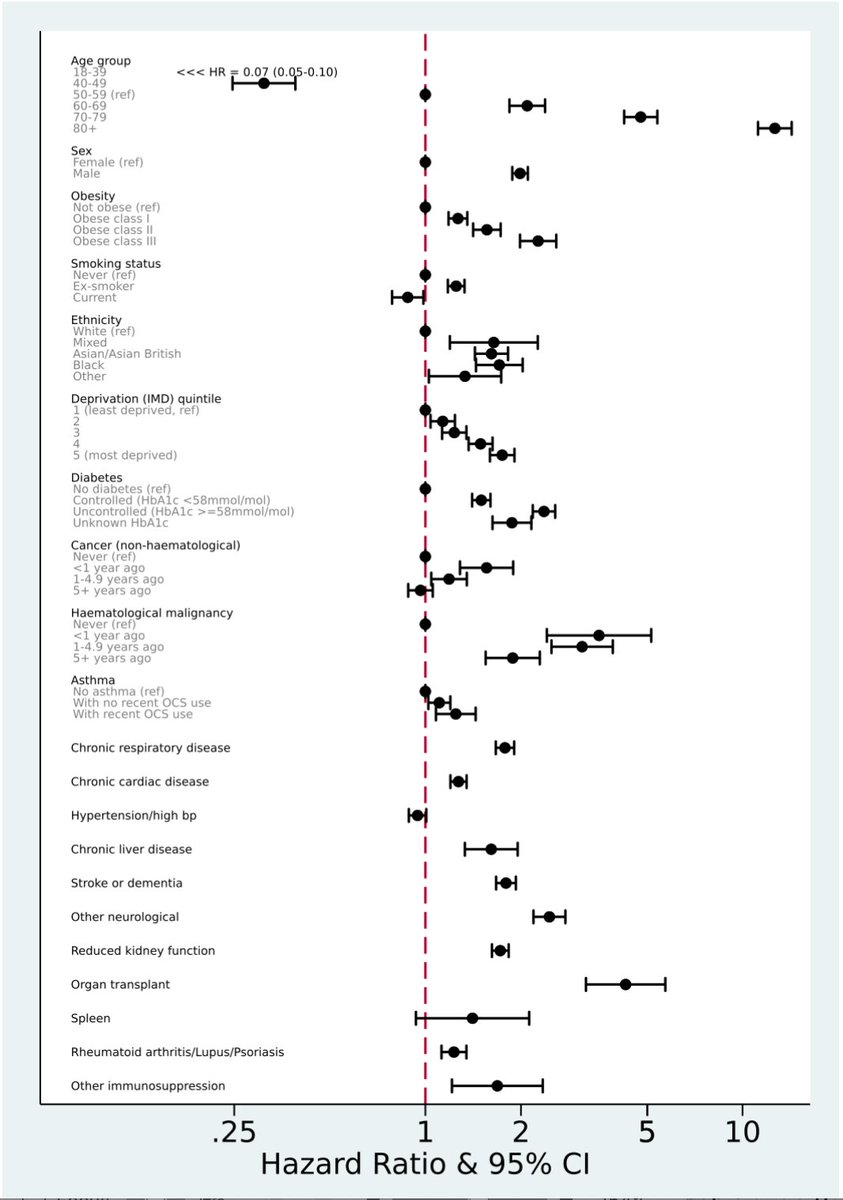
***BIG NEWS***
We couldn’t be more delighted with this #RareDiseaseDay announcement of a new Rare Disease Clinical Trial Network, from @hrbireland. And we're very proud to be part of it.
Full press release 👉 bit.ly/3ssuejN
A thread 🧵 (1/6)...
We couldn’t be more delighted with this #RareDiseaseDay announcement of a new Rare Disease Clinical Trial Network, from @hrbireland. And we're very proud to be part of it.
Full press release 👉 bit.ly/3ssuejN
A thread 🧵 (1/6)...

Congratulations to Prof Rachel Crowley (@rachsail) & Prof Cormac McCarthy, of @UCDMedicine, for their drive to make a difference to the rare disease patients that they see in their clinics & people living with rare diseases all across the country.
#RareDiseaseDay (2/6)
#RareDiseaseDay (2/6)
Kudos to @hrbireland for getting behind their vision and for making such a big commitment to rare diseases, beyond their already significant commitments through the HRCI-HRB Joint Funding Scheme & other schemes.
@DonnellyStephen welcomed the announcement.
#RareDiseaseDay (3/6)
@DonnellyStephen welcomed the announcement.
#RareDiseaseDay (3/6)

The Network will support more rare disease clinical trials in Ireland. This means earlier access to new treatments for rare disease patients & better healthcare. It certainly won’t solve all the issues but it’s a really important part of the jigsaw.
#RareDiseaseDay (4/6)
#RareDiseaseDay (4/6)

We're very proud to be a partner in the network. Our job will be to ensure strong patient involvement. In particular, we'll co-manage a PPI Liasion with UCD, to establish a patient advisory group & to support #PPI throughout the Network.
#RareDiseaseDay (5/6)
#RareDiseaseDay (5/6)
The Rare Disease Clinical Trial Network will complement the excellent work of the @ucdsnmhs - led #RAINDROP initiative, the National Rare Disease Office, @RareDiseasesIE, @IPPOSI, @NI_RDP, @PPI_Ignite_Net, @eurordis & many others.
#RareDiseaseDay2022. (6/6)
#RareDiseaseDay2022. (6/6)

@threadreaderapp unroll
• • •
Missing some Tweet in this thread? You can try to
force a refresh




